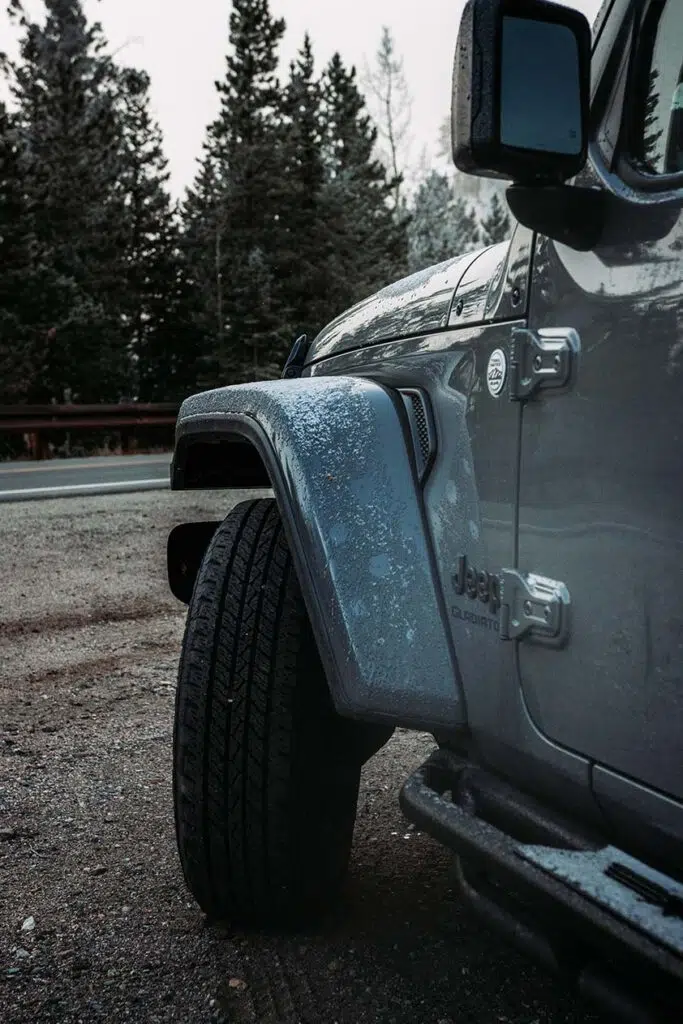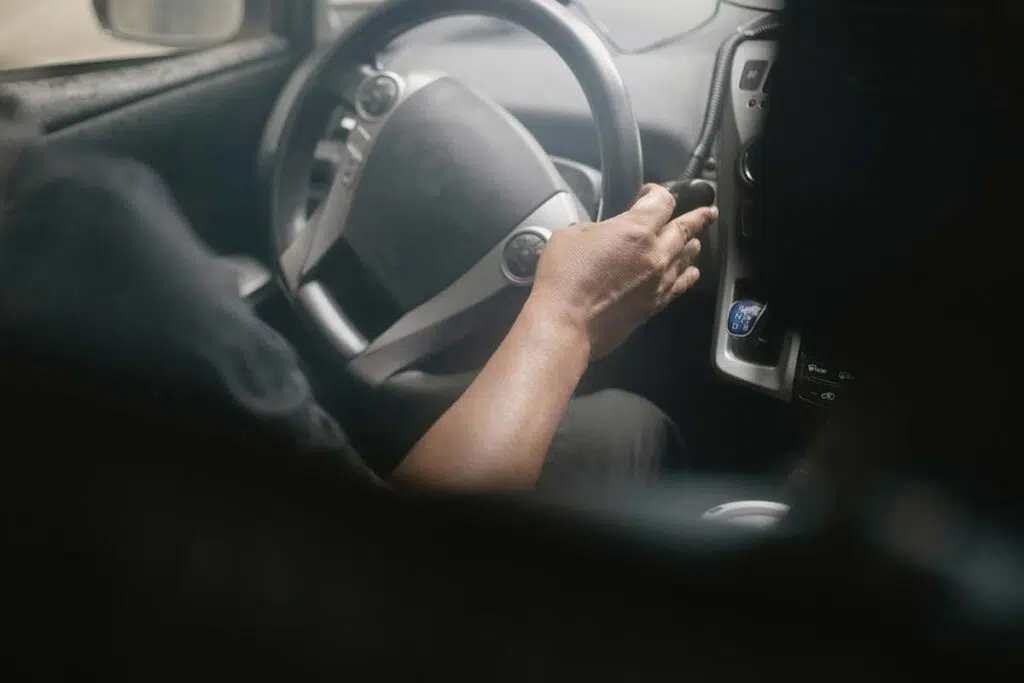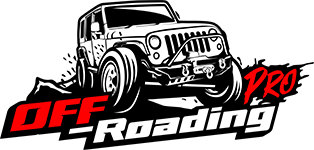A car that makes noise when turning can be pretty alarming, especially when it happens out of the blue and in the pretense of a well-maintained vehicle. It can also be very confusing, granted that noises stemming from engine problems overlap with issues linked to suspension and brake components. Thankfully, this guide sheds light on the reasons behind these strange sounds, their causes, and their fixes.
Factors that cause a car to make noise when turning include bad CV joints, damaged tie rods, and low power steering fluid levels. Misaligned tires, worn wheel bearings, and faulty suspension components are also common culprits. For these issues, a prompt resolution or professional help is best.
For a more detailed breakdown, below are the top 16 answers to the question, Why does my car make a noise when I turn?:
- Bad CV joints
- Faulty wheel bearings
- Broken steering rack and pinion
- Flawed starter or suspension components
- Uneven, out-of-balance, or misaligned tires
- Low or inadequate power steering fluid
- Clogged steering reservoir tank
- Worn struts and shocks
- Dilapidated steering column bearing or boot
- Loose or damaged tie rods
- Dried ball joints
- Worn bushings
- Damaged brake pads and rotors
- Failing sway bar link
- Damaged water pump
- Bad driving habits
Some of these causes can be easily rectified with the help of your owner’s manual and the information detailed in this guide. Meanwhile, the rest may require assistance from a professional mechanic.
Whichever the case, stick around and learn more about what triggers cars to make noises when turning and how to best resolve these problems.
Reasons a Car Is Making Noise when Turning

1. Bad CV Joints
The most common cause of car noises, such as clunking, popping, or snapping sounds when turning, are worn CV joints. Constant-velocity or CV joints are responsible for transferring “torque from the transmission to the drive wheels at constant speed while accommodating the up-and-down motion of the suspension.”
Keeping them in good condition is crucial, especially since these joints are unequal in length in front-engined four-wheel drive or FF vehicles (not to mention corrosion).
There are two types of CV joints – inner joints connecting the driveshaft to the differential (view on Amazon) or transaxle and outer joints linking the ends of the outer shaft to the wheels. Inner CV joints are hard to diagnose (moreso in rear-wheel drive or RWD vehicles), with problems usually aggravated by hard acceleration and heavy loads.
Conversely, it is easier to spot issues with outer CV joints, as they are typically characterized by grease leaks found on cracks in the CV boot or sprayed over the inner barrel of the front wheels and brake calipers.
Being prompt in resolving issues with CV joints is of the essence. More than eliminating clunking noises when turning, addressing CV joint issues on time reduces the likelihood of costly repair expenses.
A CV boot replacement would only cost between $180 and $350, whereas a worn-out CV joint may require up to $850 (or even close to $1,000) for a replacement.
2. Faulty Wheel Bearings
High-pitched whining, grinding, scraping, or rubbing noises when turning right or left is often a sign of bad wheel bearings. These noises occur when the car feels loose and tends to increase when a vehicle turns at higher speeds.
Wheel bearings facilitate the smooth running of mechanical movements and help efficiently carry weight. Cars generally use either ball or roller bearings, which support radial and axial loads.
Although wheel bearings are constructed from hardened steel and can withstand high forces, they can still fail due to exposure to heat and water. This deterioration is hastened when combined with inadequate lubrication.
The problem starts with broken wheel bearing seals, the first to cause the grating noises. Eventually, the sound becomes noticeable when steering your vehicle right or left at speeds of 50 mph (80 km/h) or higher.
3. Broken Steering Rack and Pinion
Unless you drive a large SUV, truck, or heavy-duty vehicle, your car should have a rack-and-pinion steering system. This combo is the largest component in your steering system and consists of different moving parts.
It is quite robust when in good condition. But if it fails, you may hear sounds ranging from the car making a clicking noise when turning to loud bangs from underneath your vehicle during or after making a turn.
Engine vibration, repeated contact with road debris, contaminated steering fluid, lack of professional or regular maintenance, and exposure to high temperatures are but some of the things that could cause the steering system to fail. These factors result in crack formation in the rack and pinion line and loose connections, ultimately impeding the easy handling of the power steering unit.
Apart from clicking sounds, watch out for a burnt smell, leaks, or tightness in the steering wheel, as they are also indicators of a failing rack and pinion (view on Amazon) steering system.
4. Flawed Starter or Suspension Components
A car making straining noises when first starting and turning indicates a bad starter or flawed suspension joints. If it is grinding that you hear, the issue is the former.
Missing or damaged gear teeth, a faulty solenoid, or the starter not lining up with the ring gear on the flywheel are some of the scenarios that best explain the occurrence of these noises when firing up your engine.
Conversely, grinding or straining when turning point to suspension joint problems (explained in more detail in #11).
5. Uneven, Out-Of-Balance, or Misaligned Tires
While tire noises are a given when driving, particularly hearing them when making turns should be given immediate attention.
There are, indeed, several factors that cause tire noises while driving, such as the use of off-roading knobbies or air compressed in the tire treads. But there are more pressing reasons behind these noises, especially if they seem to come from nowhere and grow louder over time.
Uneven or excessive tire wear is one of these reasons. Because the tread depth is not the same across the tire surface, loud noises are emitted while driving (more so when turning since pressure is applied to the inner wheel during the turn).
Another cause is alignment issues, which produce squealing and rubbing noises and lend to a less comfortable and bumpier riding experience. These issues are also associated with tie rod or wheel bearing damage.
Having your vehicle undergo an alignment inspection immediately following strange noises or a recent tire rotation decreases the likelihood of experiencing squealing sounds when making turns. More importantly, it would prevent serious suspension or powertrain damage from occurring.
It would also help to rotate your tires every 5,000 to 7,500 miles to ensure even tread wear and to use high-quality aftermarket tires like Goodyear Wrangler Fortitude HT All-Season Radials (view on Amazon) when replacing stock rubber.
6. Low or Inadequate Power Steering Fluid
Hearing screeching or whining noises during normal or low-speed turns could signify issues within the power steering system.
While this complex system consists of hoses, belts, and other components, the noises described are specifically associated with low amounts of power steering fluid, which result in air circulating through the steering mechanism and the creation of air bubbles in the fluid lines. These air bubbles are responsible for the strange sounds you hear when turning your steering wheel.
In most cases, this situation calls for a simple fix – topping off the power steering fluid should suffice in eliminating the screeching sounds. The noise issue should be immediately resolved if no leaks are found in the system. Otherwise, you will need to determine the source of the leak and replace the affected part immediately.
7. Clogged Steering Reservoir Tank
In addition to low steering fluid levels and damaged belts and racks, a clogged power steering reservoir tank could also cause a car to make whining noises when turning at low speeds.
This tank is where the power steering fluid is stored. But even with the help of a filter inside the reservoir, the steering fluid cannot be kept clean and safe from contamination forever.
Telltale signs of a clogged reservoir include heavy steering, difficulty in turning the wheel, and (of course) strange noises. Should you encounter any or all of these symptoms, check your fluid levels, look for leaks around the reservoir or on hoses leading to it, visually inspect its exterior or corrosion or damage, and examine the filter inside the tank for accumulated dirt and debris.
Depending on which items you tick off, you may need to do a deep clean or flush of the power steering reservoir tank.

8. Worn Struts and Shocks
You might have a problem with your shocks and struts if you notice a metallic clunking noise coupled with a loose feel when going over uneven roads or bumps. This might also happen if your car makes noise when turning right but not left (or vice-versa).
But before purchasing replacement parts, know that these noises are not always indicative of damaged components. The issue could be with loose or worn mounting hardware.
Inspect your car thoroughly and identify the problem source to determine if this is the case. Begin by checking parts that attach the shock absorbers or struts to the vehicle, including upper mounting plates and stock brackets that may have been spread apart excessively following a shock replacement.
If your shocks require a clevis-type mount, ensure that it squeezes the sides of the shocks’ mounting sleeve very securely. Otherwise, noise is guaranteed to follow.
Note: Make sure that relevant components are neither loose nor over-torqued. And never conclude the condition of mounting hardware based on looks alone – bushings can appear tight but still allow movement between bolts and attaching parts when driving.
9. Dilapidated Steering Column Bearing or Boot
When worn, the noise that these components make is similar to misaligned tires, except that the loud rubbing sound comes from the steering wheel itself. It may even be accompanied by excessive play in the steering wheel – although this symptom may not always be present.
As a quick fix, some vehicle owners have tried spraying lubricant onto the bearings and the boot to prevent water from entering the steering column. However, this is not a guaranteed resolution, especially if the damage is with upper bearings.
10. Loose or Damaged Tie Rods
A clunking or knocking noise when turning at low speeds could indicate damaged tie rods. Tie rod ends connect with the rack and pinion. As they become loose, tie rods can come off their boots and rattle around at the joints and links, causing the noises described above.
The boot protecting the tie rods can also get damaged, permitting dirt and debris in and causing that grinding sound you hear when steering. Loose tie rods can cause your vehicle’s front end to become misaligned.
11. Dried Ball Joints
Functionally, ball joints and wheel bearings are the same in that they enable movement of nearby components. In the case of the former, it supports suspension control arms and steering knuckles.
If the ball joints are the culprit, you will hear a creaking sound that gets louder over time whenever you turn the wheel. This is likely to happen if the ball joints are bone-dry or not properly lubricated.
When ball joints wear out, they either move excessively or get stuck in one position. Either situation will result in squeaking or crunching noises when your car makes a turn at low speeds. To prevent this, ensure that the ball joints are adequately lubricated.
You may access these components by removing your vehicle’s wheel and brake components and pumping new grease into the ball joint fitting with a grease gun.
12. Worn Bushings
Bushings needing lubrication or replacement usually create creaking or groaning sounds, if not a loud banging noise. Depending on their wear, you may feel your entire car do a shimmy from the front – in addition to noises created as the control arms shift around inside its housing.
Because they attach to the control arms that connect the axle carrier assembly to the vehicle frame or the top of the front strut, suspension, and jounce bushings should always be properly lubricated and never left dry or damaged.
13. Damaged Brake Pads and Rotors
While brake pads and rotors are better associated with vibration issues, these components can also cause grinding noises when turning or braking once they become problematic. Damaged brake components are often an outcome of negligence more than natural wear.
When a driver continuously uses worn brake pads, the latter starts to eat down on the rotors, causing metal-to-metal contact and premature rotor failure.
The only fix is through parts replacement. After all, brake pads (and even rotors) are consumable components meant to be replaced once they have reached their limit. You should never skimp on replacing brake components accordingly, lest you risk an on-road accident.
14. Failing Sway Bar Link
When your car’s sway bar link fails, you will likely experience knocking or clunking sounds while turning – in addition to poor handling, over-steering, and the vehicle’s propensity to lean to one side. The sway bar links hitting other suspension components are what causes the noises mentioned above. Replace the affected linkage at the first sign of these symptoms.
15. Damaged Water Pump
A damaged water pump may be linked more to engine noises, but it can also be the culprit behind grinding noises when turning.
Functionally, this component is in charge of circulating coolant through the radiator and engine block and uses pulleys to make it happen. However, the metal-on-metal grinding noises do not come from defective pulleys but rather from worn-out internal bearings.
Unlike the other noises described in this list, the sounds associated with a defective water pump are not that distinct. They can be easily confused with noises produced by damaged suspension components.
A best practice in determining whether the sound is from the water pump is by popping the hood and listening to the sound while your vehicle is idling.
16. Bad Driving Habits
Finally, we have rough driving to blame for the strange noises we hear when making turns or while driving. It is already a given that all car parts are bound to deteriorate over time. And yet, we hasten the process by disregarding proper care of these components.

The following driving behaviors are but a few examples of how we fast-track the premature wear and tear of our vehicle and its components:
- Driving around with extra, unnecessary weight adds stress on suspension and brake components
- Executing parallel parking by shifting from reverse to drive (or vice-versa) before a complete stop
- Resting the hand on the shifter and adding pressure on bushings
- Running on low fluids that provide inadequate lubrication
- Sudden braking and acceleration take a toll on brake and drivetrain components
- Unnecessarily revving the engine, affecting proper lubrication of bearings and other car parts
Conclusion – Car Makes Noise When Turning
To recap, here are the 16 most common reasons behind a car making noise when turning:
- Bad CV joints
- Faulty wheel bearings
- Broken steering rack and pinion
- Flawed starter or suspension components
- Uneven, out-of-balance, or misaligned tires
- Low or inadequate power steering fluid
- Clogged steering reservoir tank
- Worn struts and shocks
- Dilapidated steering column bearing or boot
- Loose or damaged tie rods
- Dried ball joints
- Worn bushings
- Damaged brake pads and rotors
- Failing sway bar link
- Damaged water pump
- Bad driving habits
Proper lubrication, regular maintenance, and careful, thoughtful driving are some ways to stop the recurrence of these strange noises – especially when you are on the road. But if push comes to shove, a visit to your local mechanic would be the ideal course of action (not to mention the best way to prevent serious component failure and costly repairs).
Kris is an avid off-roader and outdoor enthusiast who loves to brave the elements and take on challenging terrain. He also enjoys sharing his passion and knowledge with others so that they, too, can appreciate the ride.
About Kris
